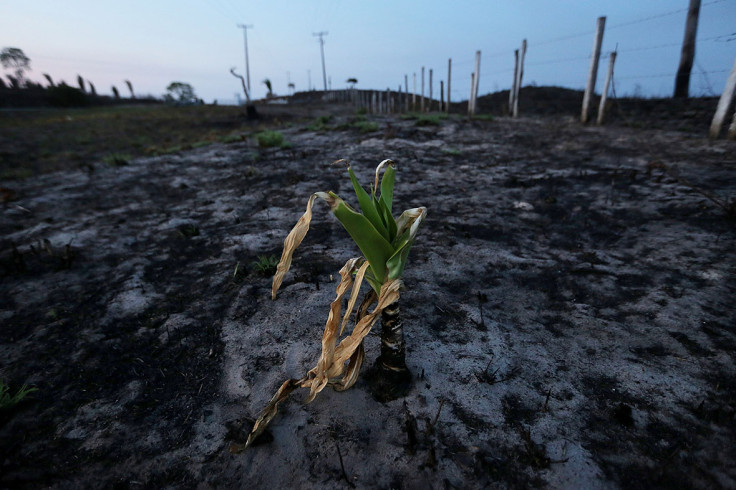Humans face extinction if plant destruction continues: 'Laws of thermodynamics have no mercy'

Humans will either go extinct or be forced to return to hunter-gatherer lifestyles if we continue to destroy Earth's plant life, a study has found.
John Schramski, from the University of Georgia, has said our planet will become less and less hospitable as a result of plant loss, and if we do not go extinct, our lifestyles will revert to those of our ancestors 12,000 years ago.
In a study published in the journal PNAS, Schramski and colleagues used thermodynamics (the relationship between heat and energy) to look at the chemical energy stored in plants and the rate at which it is being destroyed to establish the consequences of continued destruction.
Earth was an empty landscape for billions of years – until organisms evolved to transform sunlight into energy. After this, there was an explosion of plant and animal life.
The researchers estimate the planet contained around 1,000 billion tonnes of carbon in plant life 2,000 years ago and that since then, humans have reduced that amount by around half – destroying it to make room for cities and agriculture. It is thought we have destroyed around 10% of this bank of carbon in the last 100 years.

"You can think of the Earth like a battery that has been charged very slowly over billions of years," Schramski said.
"The sun's energy is stored in plants and fossil fuels, but humans are draining energy much faster than it can be replenished. If we don't reverse this trend, we'll eventually reach a point where the biomass battery discharges to a level at which Earth can no longer sustain us."
The study showed most of the biomass loss was the result of deforestation and large-scale mechanized farming in order to feed a growing population. Since 1800CE the global population has risen from an estimated one billion to seven billion.
As more plant life is destroyed, the less stored energy the planet has to maintain its natural balance.
"As the planet becomes less hospitable and more people depend on fewer available energy options, their standard of living and very survival will become increasingly vulnerable to fluctuations, such as droughts, disease epidemics and social unrest," Schramski said.
The study found that the current rate of energy consumption of modern humans is around 24 times that of hunter gatherers. It said the rate of net discharge between mankind's metabolic needs and the remaining chemical stores is "obviously unsustainable".
Schramski told IBTimes UK that there is no timeframe on when the biomass battery will run out or how long it will take to recharge, but said the paper's key challenge was to ensure people understood how important plant life as an energy source.
"We speak of energy in ways that are sometimes misleading – that a lot of energy is interchangeable. That may be true for manmade devices but when we're talking about running the biosphere, there's only one energy that matters and that's biomass. And biomass is the cornerstone energy to all other energies. It's not interchangeable. There is no replacement for biomass and there never will be."

The authors conclude: "The Earth is in serious energetic imbalance due to human energy use. This imbalance defines our most dominant conflict with nature. It really is a conflict in the sense that the current energy imbalance, a crisis unprecedented in Earth history, is a direct consequence of technological innovation.
"For the first time in history, humanity is facing a global chemical energy limit. The earth-space battery paradigm provides a simple framework for understanding the historical effects of humans on the energy dynamics of the biosphere, including the unalterable thermodynamic boundaries that now pose severe challenges to the future of humankind.
"Living biomass is the energy capital that runs the biosphere and supports the human population and economy. There is simply no reserve tank of biomass for planet Earth. The laws of thermodynamics have no mercy. Equilibrium is inhospitable, sterile, and final."
© Copyright IBTimes 2025. All rights reserved.






















